Right now a haze of speculation hangs over the vape category. Retailers love it for helping replace dwindling smokes sales – politicians, not so much. And it’s through their efforts that regulation is creeping ever closer. The jury’s out on the consultation on vapes embattled PM Rishi Sunak set in motion earlier in the year (and he might now have other things on his mind). But with both conservative and opposition MPs seeing anti-vape sentiment as a vote winner, legislation looks like it could come in sooner rather than later.
A recent survey conducted by age verification specialist Serve Legal where 80% of the 504 respondents were young people aged between 18-21, revealed that over half believe that banning disposable vapes will not stop young people accessing them.
However, 60% believe restrictions on vape packaging and flavours to make them less appealing to children would make a difference.
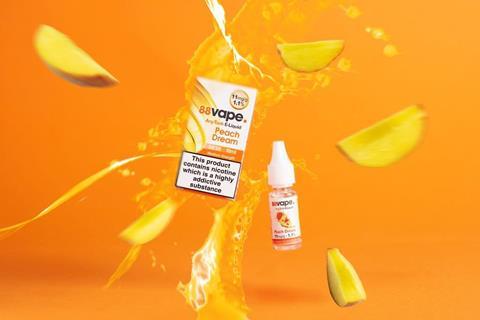
Several vaping brands are taking matters into their own hands to beat the jump on any official bans. In October, disposable vape manufacturer Supreme set the pace with an announcement it is to stop using brightly coloured products and using “age-appropriate flavours” on its 88Vape range.
Elfbar has also just announced plans to ditch sweet flavours. The vape brand has already dropped Bubble Gum, Cotton Candy and Rainbow Candy flavours, with soft drinks and dessert flavours expected to follow.
An Elfbar spokesperson said: “This is a continuation of our efforts to limit their appeal to children, while being mindful that flavours play a critical role for adult smokers and ex-smokers on their journey to quit smoking.”
Over at Supreme, head of vape Mike Holliday admits that the brand has never been seen as particularly cool or trendy – just aimed at adults who want quality and value for money.
“Despite this we felt we could do more to make sure we were aiming our products purely at the adult smoker who’s looking to make that transition to vaping,” he says.
“Packaging was our first port of call – so we’re moving to a white base and black branding. It’s a standardised format so there’s nothing there to try and make it funky to a 16-year-old.”
A big part of the packaging switch-up includes adding “over-18s only” on the packs. Holliday says that this can act as a visual prompt for c-store retailers – especially for less experienced weekend staff.
With anti-vape feelings centred around young people getting hold of the products, age verification is a key part of responsible retailing.
“Retailers have a responsibility to proactively prevent underage sales and support youth access prevention measures,” says Tom Gully, head of consumer marketing UK & Ireland at Imperial Tobacco.
“As part of this, retailers must implement and demonstrate an age verification policy and process is in place and make sure that nicotine products are only marketed to and used by adults. With this in mind, we encourage retailers and their staff to familiarise themselves with Challenge 25 policies to ensure age verification on all tobacco and vape related sales.
“As with all nicotine products, it’s imperative that both retailers and their staff carry out age verification checks on customers who are looking to purchase disposables to ensure that the products don’t end up in the hands of minors.”
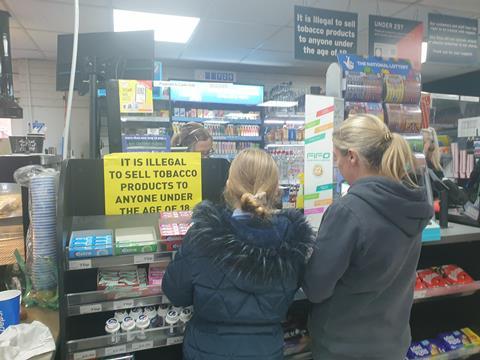
Most responsible c-stores happily do this already. But Mark Canniford of Spar Loxton Road in Somerset says that the ones that don’t are letting down the sector. He tells the story of a 16-year-old customer who casually told him there were at least four stores near his that didn’t ID. His solution would be better enforcement.
“There needs to be some kind of threat,” he says. “It could work like alcohol. Retailers have to acquire a license and then if they sell to people under-age then they lose that license – and might lose their business. But we don’t have to go gung-ho into making all sorts of ridiculous blanket rules because of some bad retailers.”
“Vaping is a really important part of the market – but it’s got a social benefit too,” he says.
“It’s reversed the increase in cigarette sales and is now filling the gap it that has created. We’ve got to really pull this back and get some sensible discussion, rather than base it on emotion.”
John Dunne, director general of the UK Vaping Industry Association (UKVIA), says there is no excuse for selling products which do not comply with the law or for selling to those under 18.
“While many retailers take all the necessary checks to ensure they don’t sell to those under 18, there are others who don’t and this is totally unacceptable,” he says.
“These are the same people who will also sell illegal ‘large puff’ vapes to both children and adults and this disregard for the law must stop.
“The UKVIA is very clear on this matter and has repeatedly called for new fines of at least £10,000, per instance, for those who sell to children or who sell illicit or illegal vape products to any customer.”
Dunne cites figures from UKVIA member Arcus Compliance revealing that across 11 major provincial UK cities – which have a shared population of more than 5.5 million people – just 21 successful prosecutions have been made against retailers for underage and illicit sales between 2021 and early 2023.
“This is clearly not good enough and we want Trading Standards departments to have sufficient funding to significantly ramp up their enforcement activities,” he says.
Education isn’t just about checking ID. Sue Nithyanandan from Costcutter Epsom has been retailing vapes for two years and admits that when she started she had a lot to learn.
“To start with we weren’t very well organised,” she says. “Then we started to have an interactive screen in the store so people could put in their preferences and that is how we started learning about what people wanted. I have a young team and one of my staff, who was still smoking at the time, became fascinated with it – so she became a good source of knowledge too.”
Sue says that vapes are a big-seller in the store and that the category’s gotten so big “even the butcher down the round is selling them.” And with high schools nearby that means being ultra-responsible. “All my staff are well trained around responsible retailing – they know what to do with vapes,” she says. “Also, and I’m very conscious about this, I make sure that the case is locked, so no-one can come in and help themselves. That becomes a good barrier.”
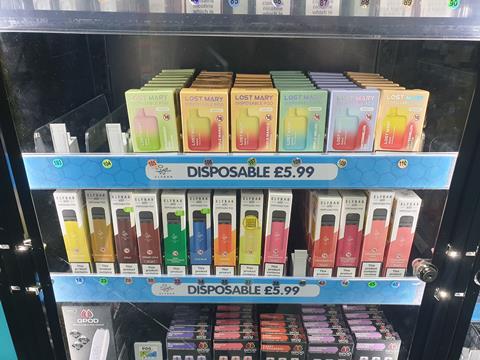
Sue says that Lost Mary is her top seller, but feels that Elf Bar has lost out to Crystal Bar after the former changed its formulation. The presence of those two in most store’s top three confirms that flavours are important. Which means that brands don’t want to lose them in the future.
Holliday says that Supreme is committed to phasing out “the super sweet flavours and the bubble-gums” in its range. However, as a vaper who doesn’t like menthol he feels that “flavours [still] are an important part of the vaping journey moving out of smoking”.
Mark warns that flavour bans would have a chilling effect on ex-smokers turning to vapes. “No-one will want vapes if they just come in tobacco-flavoured packs,” he says. “It’s the habit that people are addicted to, not the taste.”
Whatever c-stores stock they need to check everything is fully compliant.
“Disposable vapes have seen impressive growth over the last year and this popularity has made them an area of focus for illicit traders,” says Gully.
“As a result, we’re seeing an increasing number of non-compliant vape products come to market. Non-compliant disposable vapes entering the market have been found to present particular compliance risks, in that they contain an excessive amount of nicotine, which may have potentially harmful effects on consumers. It is illegal for non-compliant products to be sold in the UK, or for compliant products to be sold to those aged under 18 years old.”
He advises particularly checking for vapes that state that they contain Nicotine or Nicotine Salt (Nic Salt) e-liquid which is over 2% (20mg/ml) – or those that contain more than 2ml of liquid.
Some critics worry that future regulation will send vapes underground, way beyond the scope of any compliance. As Mark says, banning vapes will give them an extra illicit edge young wannabe rebels will no doubt lap up.
Before that happens all eyes are on brands to help burnish the category’s image – to make sure it doesn’t go up in smoke.
“I like to think that if a large brand like us can show that this is the way to do it responsibly then the rest of the industry could follow what we’re doing rather than waiting to see what comes through and worrying about it later,” says Holliday.




















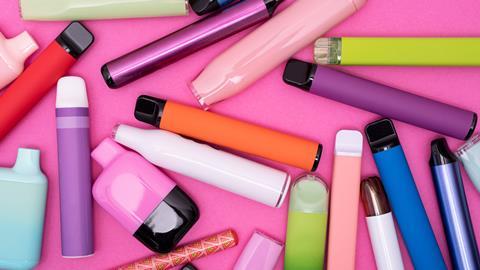
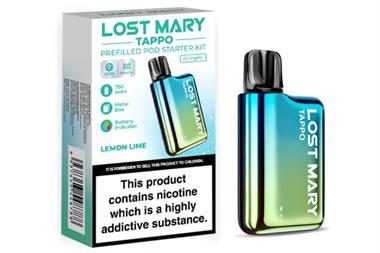
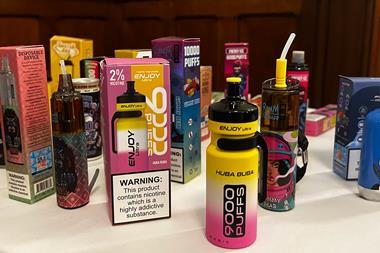
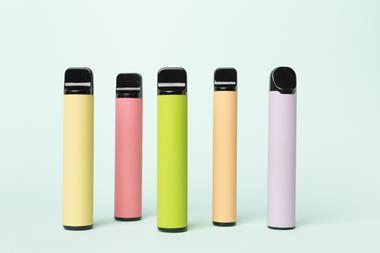
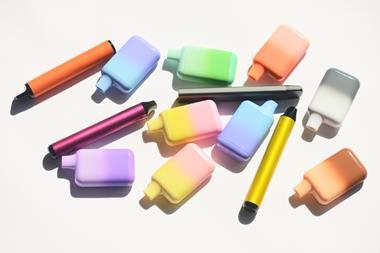
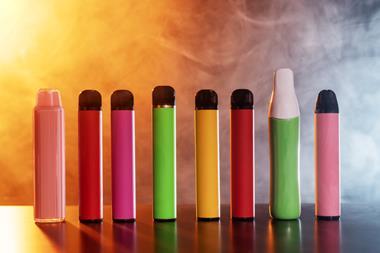






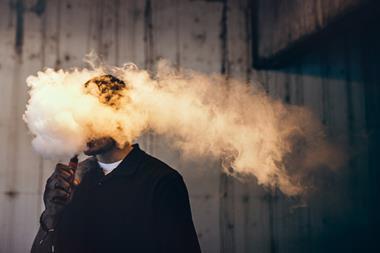
No comments yet